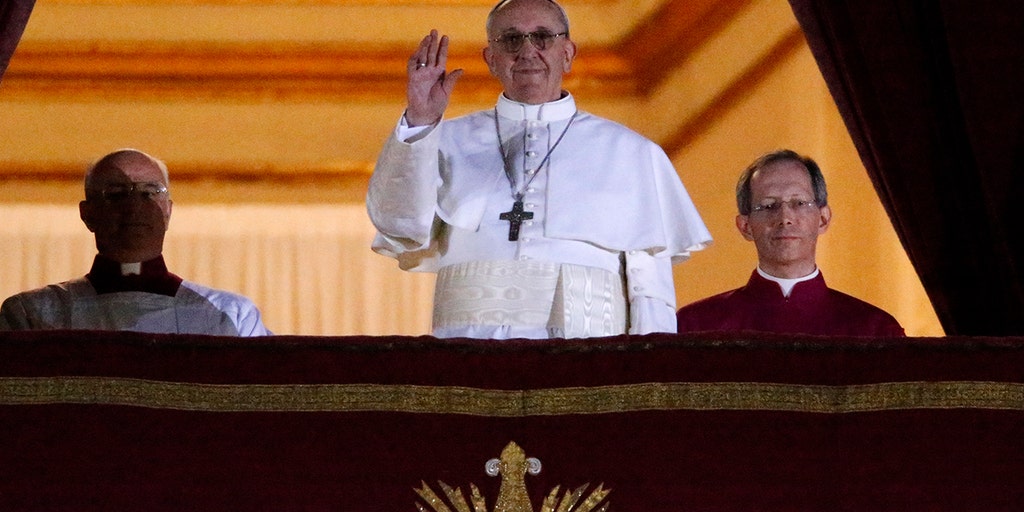Transformative Papacy: 5 Ways Francis Reshaped Catholicism
Lifestyle
2025-04-21 10:25:40Content

Pope Francis: A Transformative Leader Who Reshaped the Catholic Church
In the annals of papal history, Pope Francis stands as a groundbreaking figure who transcended traditional boundaries. As the first Jesuit pope and the first pontiff from the Americas, he brought a revolutionary spirit to the Vatican, challenging long-standing norms and inspiring a global conversation about compassion, social justice, and spiritual renewal.
His pontificate was marked by unprecedented openness and a profound commitment to addressing contemporary challenges. From his humble approach to leadership to his passionate advocacy for the marginalized, Pope Francis redefined the role of the modern church leader. His emphasis on mercy, environmental stewardship, and inclusive dialogue resonated far beyond the Catholic faithful, making him a respected moral voice on the world stage.
The impact of Pope Francis will undoubtedly echo through generations, challenging believers and non-believers alike to reimagine faith as a powerful force for positive social change. His legacy is not just about religious transformation, but about a broader vision of human dignity, understanding, and global solidarity.
A Transformative Legacy: Pope Francis and the Reinvention of Global Catholicism
In the annals of ecclesiastical history, few religious leaders have captured global imagination and challenged traditional paradigms quite like Pope Francis, whose revolutionary approach to papal leadership has fundamentally reshaped the Catholic Church's engagement with contemporary social and spiritual challenges.A Pontiff Who Dared to Redefine Spiritual Leadership
Breaking Institutional Barriers
Pope Francis emerged as a watershed moment in Catholic Church history, transcending conventional expectations by becoming the first Jesuit pope and the inaugural pontiff from the Americas. His ascension represented more than a geographical shift; it symbolized a profound philosophical transformation within an ancient institution. Unlike his predecessors, Francis demonstrated an unprecedented willingness to confront systemic challenges, addressing issues of social justice, economic inequality, and institutional reform with remarkable candor and compassion. His approach challenged long-standing ecclesiastical norms, emphasizing pastoral care over rigid doctrinal enforcement. By prioritizing mercy, inclusivity, and human dignity, he repositioned the Church as a dynamic, responsive spiritual community rather than an immovable, hierarchical structure.Global Humanitarian Vision
Francis's pontificate distinguished itself through an expansive, globally-oriented perspective that transcended traditional religious boundaries. He consistently advocated for marginalized populations, addressing critical global challenges such as climate change, refugee rights, and economic disparity with unprecedented moral clarity. His encyclicals and public statements represented a radical departure from previous papal communications, engaging directly with contemporary societal complexities. By articulating nuanced positions on environmental stewardship, economic justice, and interfaith dialogue, he transformed the papal platform into a powerful instrument for global social commentary.Theological and Institutional Reformation
Beyond symbolic gestures, Pope Francis implemented substantive reforms within the Vatican's administrative structures. He confronted historical institutional challenges, including financial transparency, addressing historical misconduct, and promoting a more inclusive ecclesiastical environment. His commitment to decentralization challenged centuries of top-down governance, empowering local dioceses and encouraging more contextual spiritual leadership. This approach signaled a fundamental reimagining of Catholic institutional dynamics, prioritizing pastoral sensitivity over bureaucratic rigidity.Interfaith and Intercultural Dialogue
Francis distinguished himself as a pioneering advocate for interfaith understanding, consistently promoting dialogue and mutual respect across religious traditions. His diplomatic engagements and symbolic gestures—such as visiting mosques, meeting with religious leaders, and condemning religious extremism—positioned him as a global peacemaker. By emphasizing shared human values over doctrinal differences, he offered a compelling alternative to narratives of religious conflict, demonstrating the potential for spiritual leadership to bridge cultural and philosophical divides.Technological and Cultural Adaptation
Remarkably, Pope Francis embraced technological platforms and contemporary communication strategies, becoming the first truly digital pontiff. His social media presence and direct, accessible communication style resonated with younger generations, bridging generational gaps within the Catholic community. This technological fluency allowed him to extend the Church's spiritual message beyond traditional ecclesiastical boundaries, engaging global audiences through unprecedented accessibility and authenticity.Lasting Philosophical Impact
Pope Francis's legacy extends far beyond institutional Catholicism. His philosophical approach—characterized by humility, compassion, and a commitment to social justice—has influenced global conversations about spiritual leadership, institutional responsibility, and human dignity. By challenging entrenched power structures and advocating for systemic transformation, he has positioned the Catholic Church as a potential catalyst for meaningful social change, inspiring individuals across diverse cultural and philosophical landscapes.RELATED NEWS
Lifestyle

The Silent Budget Killer: When Your Spending Habits Quietly Spiral Out of Control
2025-03-27 12:00:23






